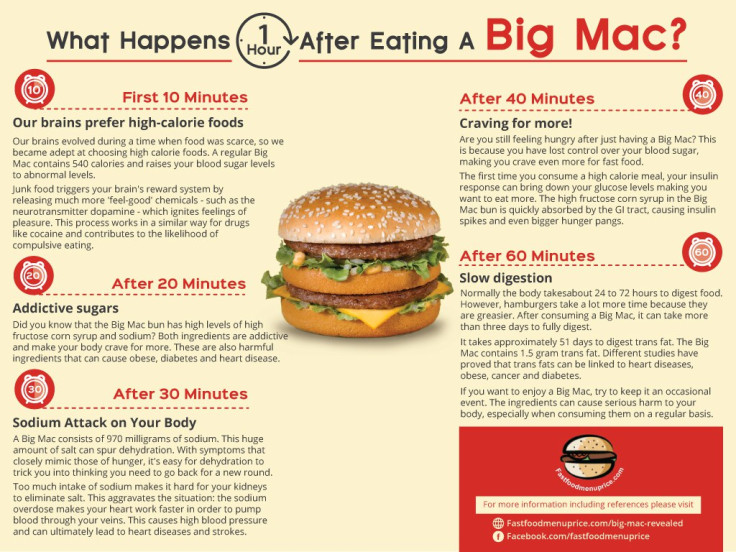Woman stores McDonald's Happy Meal for six years in health experiment

A woman in Alaska embarked on a mission to put the McDonald's Happy Meal to a health test. The mother purchased a Happy Meal in 2010 and left it untouched for six years to see if the food decomposes.
"It's been 6 years since I bought this 'Happy Meal' at McDonald's. It's been sitting at our office this whole time," said Jennifer Lovdahl on her Facebook. "[It] has not rotted, moulded, or decomposed at all!!! It smells only of cardboard. We did this experiment to show our patients how unhealthy this 'food' is. Especially for our growing children!!...There are so many chemicals in this food! Choose real food! Apples, bananas, carrots, celery....those are real fast food."
It's been 6 years since I bought this "Happy Meal" at McDonald's. It's been sitting at our office this whole time and...
Posted by Jennifer Lovdahl on Wednesday, 3 February 2016
Lovdahl had taken to her Facebook account and posted several pictures of the food, where the nuggets and fries seemingly resemble the meal at the time of the purchase. Though unconfirmed, a receipt stuck to the meal box was dated 8 January 2010.
According to a Q&A on McDonald's website, when asked why its food does not rot, the fast food chain says: "Actually, it can. Food needs moisture in the air for mold to form. Without it, food will simply dry out – sort of like bread left out on a counter overnight to make croutons for stuffing. You might have seen experiments which seem to show no decomposition in our food. Most likely, this is because the food has dehydrated before any visible deterioration could occur."
McDonald's also says that while some of their products contain trans fats naturally existent in foods like beef and chicken, at other times, some trans fats are also artificial. The fast food company, however denies adding any monosodium glutamate (MSG) to its menu items.
Earlier an infographic was set out to reveal how the body suffers within an hour of consuming a McDonald's Big Mac burger. After the first 10 minutes, there was a sudden surge in blood sugar levels, 20 minutes later the high fructose corn syrup and sodium in the buns make us have strong cravings for more, and half an hour later, the high salt levels leave us dehydrated, making it difficult for the kidneys to digest salt.

© Copyright IBTimes 2025. All rights reserved.






















